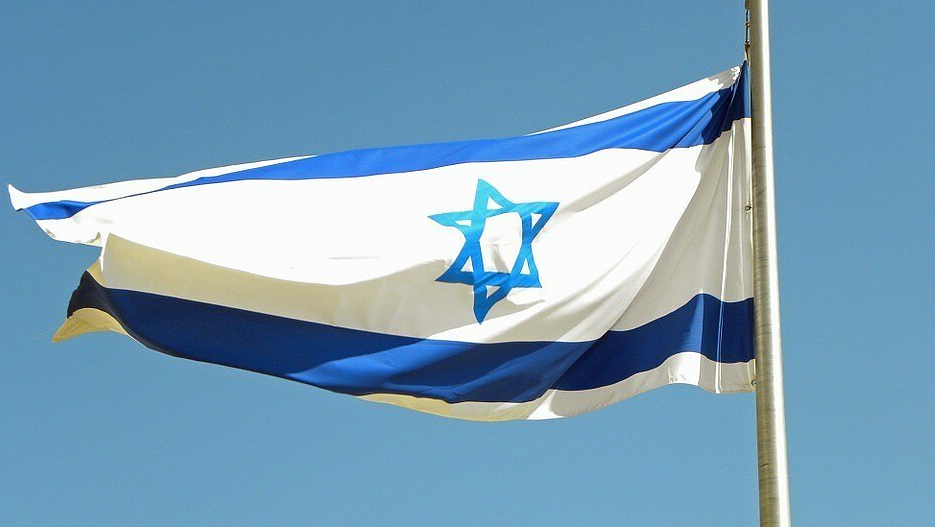
The United Nations has passed numerous resolutions on the Israel-Palestine issue, but since October 7, voting by UN members has been observed very closely. While Lithuania is seen as a staunch supporter of Israel and the United States, its voting record is more nuanced, reports national broadcaster LRT.lt.
Lithuania’s voting on issues related to Israel show that it often supports pro-human rights positions or follows a common EU line, but is equally cautious of angering the United States and Israel, says Ernesto Verdeja, an international law expert and associate professor of political science and peace studies at the University of Notre Dame.
In late October, the United Nations General Assembly adopted a resolution tabled by Jordan calling for an immediate “durable and sustained humanitarian truce” between Israel and Hamas. The resolution called on Israel to cease its offensive in the Gaza Strip and demanded a sustained provision of vital goods and services to civilians in Gaza. Muslim countries then called for a vote in favour of a resolution to help civilians. The US ambassador objected that the resolution did not mention Hamas’ atrocities or hostages being held by the group. “This provides cover for and reinforces the brutality of Hamas,” according to US Ambassador to the UN Linda Thomas-Greenfield.
Then an amendment was proposed clearly identifying and condemning Hamas’ actions and demanding the release of Israeli hostages in the Gaza Strip. However, the amendment was not adopted, with only 88 countries supporting it, 55 voting against and 23 abstaining. The resolution itself was adopted, with 120 countries voting in favour, 45 abstaining and only 14 members opposing it. Among those who voted against were Israel itself and its close allies: the USA, Austria, Hungary, the Czech Republic, and Croatia.
Eight EU countries – Belgium, France, Ireland, Spain, Luxembourg, Malta, Portugal and Slovenia – supported the resolution calling on Israel to end hostilities. As many as 15 EU countries abstained in the vote, including Lithuania, Latvia, Estonia, and Poland. The resolution and Lithuania’s vote displeased Israel supporters in the country. Conservative MP Laurynas Kasčiūnas, chair of the parliamentary Committee on National Security and Defence, called the resolution “shameful” on Facebook, but did not comment on Lithuania’s position.

Justina Rudzinskaitė, assistant permanent representative of the Lithuanian mission to the UN, said in a comment to LRT.lt that the decision to abstain was taken in view of “the overall context” and the political direction Lithuania was advocating. Commenting on the outcome of the vote, Verdaja stressed that “The most frequent abstentions, especially among European countries, were due to the fact that they felt the resolution was too critical of Israel, which the United States sees as a strategic partner in the Middle East, and not sufficiently critical of Hamas.”
Lithuanian politicians have repeatedly expressed their support for Israel and condemned the attacks carried out by Hamas on October 7. However, looking at Lithuania’s votes in the UN General Assembly in recent years on resolutions of importance to Israel, it is clear that Vilnius and Tel Aviv, as well as Washington, hold diverging positions.
For example, the 2022 resolution on Israeli settlements in the Occupied Palestinian Territory, including East Jerusalem, and the occupied Syrian Golan condemns “settlement activities by Israel, the occupying Power, in the Occupied Palestinian Territory, including East Jerusalem, as violations of international humanitarian law”. This resolution was supported by 141 countries, with 21 abstaining, 7 opposed and 24 not voting at all. Among those opposed were Israel, the USA, Nauru, Micronesia, the Marshall Islands, Hungary, and Canada. At the time, Lithuania was among the supporters of the resolution, along with many other EU countries. Similar results can be seen in other UN General Assembly resolutions on Israeli activities in the Golan.
Lithuania also abstained in the vote on the resolution on the “Work of the Special Committee to Investigate Israeli Practices Violating the Human Rights of the Palestinian People and Other Arabs of the Occupied Territories”. It called for the Special Committee to further investigate Israeli policies and actions in the occupied parts of Palestine, including East Jerusalem, and to investigate alleged violations of the Geneva Convention. As many as 73 countries abstained, while Israel, together with its closest ally the US, voted against the resolution, as did 16 other countries.
The Lithuanian mission to the UN assured LRT.lt that the decision on how to vote on the resolutions is taken in light of the government’s foreign policy objectives and that “in order to achieve the desired results in international organisations, including the UN, the Ministry of Foreign Affairs is guided by the 18th Programme of the Government of the Republic of Lithuania, the Strategic Plan of the Areas of Government of the Ministry of Foreign Affairs of the Republic of Lithuania for the period 2023-2025, the EU’s jointly-agreed priorities for action in international organisations and international commitments”.
“Since the beginning of its membership in the United Nations, Lithuania has consistently contributed to world and regional peace, security and stability. We are committed to strengthening human rights and democracy, and to finding sustainable solutions to global and regional problems,” Rudzinskaitė said in her reply.
UN resolutions can be adopted by the Security Council or the General Assembly. The UN Security Council is mandated by the UN Charter to maintain international peace and security, and the resolutions it adopts can play an important role in mobilizing international resources and political will to address security and human rights crises. “UN Security Council resolutions are legally binding, although enforcement can be difficult on a case-by-case basis,” noted Verdaja.
A resolution can be vetoed by any of the five permanent members – the UK, the US, China, France, and Russia – which makes it difficult to pass any resolutions that cross the interests of any of these members. For example, the UN Security Council did not adopt a resolution proposed by Russia on the war between Israel and Hamas. The US and the United Kingdom were among those who did not support the resolution, pointing out that, like the resolution adopted by the General Assembly, it failed to condemn the attacks by Hamas.
 General Assembly resolutions are important statements of position by member countries. UN Watch points out that the US supports Israel in almost 90 percent of the votes. While Washington may express criticism of the Israeli government, especially Prime Minister Benjamin Netanyahu, its support at the UN has never wavered.
General Assembly resolutions are important statements of position by member countries. UN Watch points out that the US supports Israel in almost 90 percent of the votes. While Washington may express criticism of the Israeli government, especially Prime Minister Benjamin Netanyahu, its support at the UN has never wavered.
However politically significant the UN General Assembly resolutions may be, they are not legally binding and are rarely followed by concrete action.
“In reality, the combination of UNGA resolutions and sustained forms of pressure – diplomatic, economic and even military – can have a greater impact, but it depends on the case,” stressed Verdaja.





























